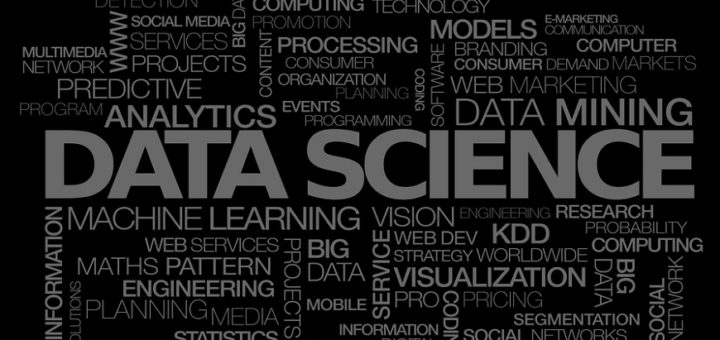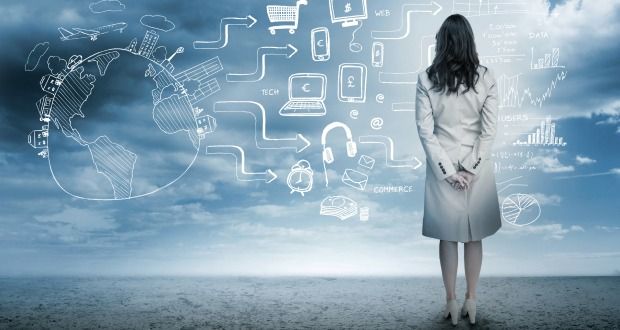We had the opportunity to interview Shalain Gopal, Data Science Lead at Barclays Capital. Shalain is one of the speakers of Women in Digital & Data running on 27 September 2018 in Johannesburg.
Thanks for your time Shalain. Please tell us, how did you become interested in data?
My whole career has been centred and focused on technology, processes, people & most especially data. Data Science is the fancy term given to the age we currently live in that uses all forms of data to hopefully make the world better. I have always been curious about data and the things that can be done with it, the problems it can solve. I am passionate about getting data right at the source, then downstream things will just work.
What are some of the biggest challenges that women who want to venture into the world of data analytics face today?
I’m no women activist, but I am fanatical about getting women to buy into their own self-worth and stop being their own worst enemy.
The challenges facing women in data are not unique. It’s the same challenges women face in STEAM fields (Science, Tech, Engineering, Arts, Maths). Some of the many challenges include:
- Equality
- Lack of Sisterhood
- Being confident and speaking up;
- Believing in themselves;
- Overcoming perfectionism;
- Standing in their own successes.
- Generating revenue
- Building alliances with decision makers
- And the list goes on.
Data analytics/data science is perceived as a male-dominated field. What steps should be taken to attract more women to the field?
Jobs, roles in STEAM fields, it’s not a perception that it is a male-dominated field, it is a male-dominated field. Women do things differently and solve and improve situations differently, we should embrace this as it is a strength. According to Harvard, women with 8 years of programming experience are as confident as men with only 1 year of programming experience – is the lack of confidence and our perfectionism that holds us back.
Women need to start celebrating their successes, not hiding it away, we are our own worst critics. We have a voice, we need to use it and trust in our own abilities & skills. Lose the victim mentality and never give up.
Practical steps that can be taken to attract more women to the field:
- Make STEAM fields available to younger girls at primary/high school level including at the tertiary level
- Change stereotyping by creating more programs/initiatives/courses focused & directed at young women to get them into STEAM
- Create shadow programs at work that allow women to shadow senior male leaders in order to expose them to the actual environments and activities at the more senior levels.
Can you pinpoint one moment or person that was instrumental in your decision to pick this career path?
This is interesting. When I finished school, I applied to many places to study. I got accepted at UCT for heavy duty electrical engineering, but my parents wouldn’t have it, in that I was not going to CT (In hindsight it was not that they were not supportive, my parents just didn’t have the means to support me in CT). So being a rebellious teen, I applied for Travel & Tourism at ML Sultan in KZN and my dad made an application to Technikon Natal for IT – I got into both but did really well on the entrance tests for IT. That is where my passion for technology, data, people & processes all began.
What advice do you have for anyone interested in a career in data analytics/data science?
Get your hands dirty with data, don’t shy away from it. Look at the famous women in tech & data, Katherine Johnson, Grace Hopper. Just because others think you can’t all the more reason to show them you can. Data is all about connecting the dots, seeing the patterns that no one else sees, solving the problems that can’t be solved.
- Read up online about what data is nowadays and how it affects us all? E.g. how facebook/WhatsApp, social media uses data etc. (that is relatable to people)
- If above seems interesting, then do a couple online courses (loads of free courses) that provide you with some basic understanding of what data is and how you can access/transform it e.g. basic SQL, report generating, BI, analytics …
- If still interested, then go on to more recognised courses like UDEMY, DataCamp, Microsoft stuff etc.
Do you think that data can help build a more diverse and equal workplace? How so?
Most definitely. Accurate data creates the foundation to address barriers, unintended consequences, pay gaps, gender inequality, delivery progress, it’s the reality sense check. Decision making is more efficient and accurate when it is data-informed, and not opinion or emotions based. This can only work in environments where organisational leadership see the value in getting data right at the source.
What do you think is the best part of being a woman in the data analytics industry?
We are a unique powerful species, we do things differently, we breathe different perspectives into the field. We shape processes that are creative and inclusive. Plus, given the fact that this is a relatively new industry, we, as women, have the unique opportunity to make our mark and stand out in this field.
How do you think individuals can use data to advance their ideas or careers?
Data is the new currency, there is a plethora of information readily available at a click of a button. We need to embrace and filter what’s out there to help achieve what we want and, desire for ourselves.
What are some of the best and worst workplace initiatives you have seen/heard of to help promote diversity?
The definition of diversity and inclusion means different things to different people, for me it’s about women, age (generation), gender, personality type, disabilities, religious affiliations (or not), sexual orientation, ethnicity. (notice there is no race, as we are all human – so we need to level the field from this standpoint)
Best
- BASF, Deutsche Bank are some of the places that promote diversity well, they achieve this by focusing on the minorities (age, women, LGBTI, Personality style, ethnicity, disabilities etc)
- Focus on meeting the needs of the individual, move away from HR-centered initiatives
- Treat individuals as professionals, this introduces equality, as it is about getting the best person for the job not about who knows who
Worst
- Adjusting pay scales of women in tech, but it is never equal to male counterparts
- Giving the perception of flexibility in the workplace then penalising women when they exercise their flexible hours (occurs usually when women have had kids)
- Provide customised training for women advancement/leadership but fails when it needs to be executed/implemented
What advice would you give to a woman considering a career in data/data science? What do you wish you had known?
I can do things as good as my male counterparts if not better. I have a voice so use it for myself and other fellow females (discovered this about 4/5 years into my career, very powerful). My confidence is what makes me beautiful (it’s not a weakness), my strength comes from my failures and knowing I can do it, I just have to try.
- Don’t give up – it is a daunting career but with unlimited career growth
- Keep up with current trends and how big companies are leveraging data e.g Google, Airbnb, BvB, Telecoms etc.
- Work towards keeping skills relevant, do online courses, pursue a recognised qualification in data related aspects/technologies
What do you think we should be doing more of to encourage more girls to consider a career in data analytics/data science?
- Since the start of time, the human race lives in a male-dominated world, with powerful men making decisions for what was assumed to be the inferior species, ie women.
- We are not inferior, we are just waking up, we are strong, intelligent and very capable.
- We need to stop indoctrinating our little girls to be mere housewives (no offence to housewives), but rather teach them to be brave and bold like we do with little boys. We need to encourage and support young women in the STEAM fields and help them realise that these types of industries are for them. They can still have their families and their jobs and be successful doing it like only a woman can. The secret is to never give up.
Any reading/website you would recommend to stay updated?
Google is your friend. I follow Elon Musk & Richard Branson very closely, I like the way they think. I enjoy the youtube Ted Talks, WIRED, MIT Technology reviews, Gartner reviews, Data Science Central, NYDSA Academy Blog, KD Nuggets. Hard to choose one.
Fun fact about you?
I once worked at Fulham Football Club as a waitress in the President’s Lounge part-time, just for the heck of it.
To hear Shalain speak at Women in Digital & Data Johannesburg, book your seat here








